Neighbourhood watch: Karzai under fire for secretly accepting ‘bags of cash’ from CIA, MI6
Opposition says the revelation exposed the presidential palace serves British and American interests.
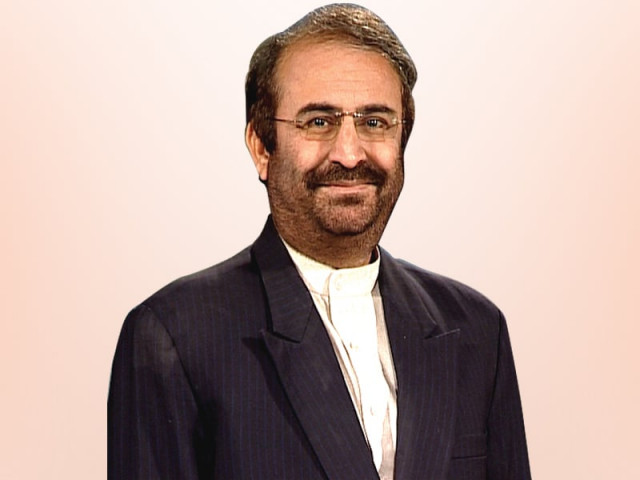
Local media lashed out and alleged the confidentiality of providing and concealing the money indicates it was being used for political objectives. PHOTO: FILE
Beleaguered Afghan President Hamid Karzai has been under fire following the recent disclosure of the US Central Intelligence Agency (CIA) providing “bags of cash” to the Karzai administration for over a decade.
Many have been calling for Karzai’s accountability since the revelation. Speaking during an official visit to Finland, the Afghan president admitted that “small amounts” were received. The New York Times reported, however, that tens of millions of dollars were “packed into suitcases, backpacks and, on occasion, plastic shopping bags” and handed over to his administration.
British daily The Guardian reported that British intelligence agency MI6 also secretly handed over money to the Afghan presidential palace, although the money “was on a smaller scale compared to the CIA handouts.” Much of this money was focused on promoting peace talks and meetings between Afghan officials and the Taliban intermediaries, the daily reported.

The CIA money disclosure has ignited a new debate on major Afghan TV channels, with many analysts discussing the purpose and distribution of the funds. Many believe the secret money funneled by the CIA has led to an increase in corruption among pro-government leaders.
Apart from Afghan analysts, lawmakers, civil society members and Karzai’s opponents have strongly criticised him for receiving money from the CIA and other foreign intelligence agencies. Some have labeled the cash “illegal” and “against the constitution.”
Local media lashed out at the news and alleged the confidentiality of providing the money and concealing where it would be spent indicates that the money was being used for political objectives.
The National Coalition of Afghanistan (NCA), the Afghan opposition, has urged President Karzai to clarify the matter to the Afghan people and tell them how the money was spent. Some people believe that the information was intentionally leaked to the media to “to pressure the Afghan government for their (US) own agenda.”
The pro-opposition daily, Mandegar, demanded President Karzai be prosecuted for accepting the cash and should be brought to justice for ignoring the country’s national interests.

Feeling the heat, Afghan National Security Advisor Dr Rangin Dadfar-Spanta clarified that ‘the money had been donated to the president’s office for operations, helping those wounded in war, to provide health services and to pay house rents in line with the government’s principles.’
Spanta said the money was also spent on furthering the peace process between the administration and Taliban groups.
The CIA money has, however, failed to divide or attract the Taliban leadership to join the intra-Afghan dialogue.
NCA member Fazl Rahman Orya said the revelation exposed the presidential palace for being at the service of British and American intelligence agencies, adding that Afghan officials were “mercenaries for the British and the US.”
This issue might be testing Karzai’s limits as he is taking the fall for mistakes his administration thinks the US and western coalition partners have made.
Karzai and his inner circle have repeatedly pointed at the US and other western countries for Afghanistan’s corruption woes. They claim that billions of dollars have been dumped into the country with little or no direction on how it would be spent.
The revelation about the CIA’s secret money to Karzai reflects more on the agency than on Karzai. It is clear that the money strengthened warlords and those people who fuel corruption. Whether the information was released intentionally or otherwise, it makes the CIA complicit in the rampant corruption that engulfs Afghan society.
Afghans are compelled to pay bribes to pay utility bills and obtain national identity cards. Parts of Kabul, the Afghan capital, are overcrowded with palatial homes with tall security walls and manned by armed security guards. Much of the money that finances these houses is illicit.
The secret money exchange also reinforces societal perceptions that the US and the West will leave behind a country rife with corruption and controlled by warlords with weak state institutions.
Published in The Express Tribune, May 4th, 2013.

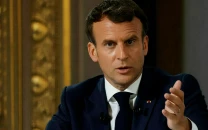
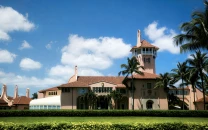
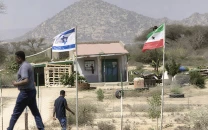
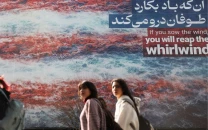
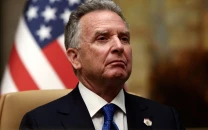













COMMENTS
Comments are moderated and generally will be posted if they are on-topic and not abusive.
For more information, please see our Comments FAQ